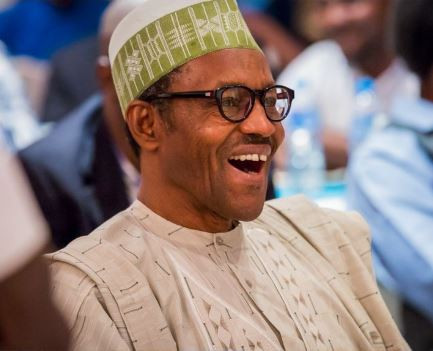News
Buhari: Borrowing to subsidise electricity is grossly irresponsible

President Muhammadu Buhari says it is irresponsible to keep borrowing money to subside the generation and distribution of electricity.
Buhari, who was represented at the first-year ministerial performance assessment retreat by Vice President Yemi Osinbajo on Monday, said the country can no longer afford to subside electricity and refined petroleum products.
Buhari is currently attending the 57th ordinary session of the Economic Community of West African States (ECOWAS) Authority of Heads of State and Government in Niger.
“Because of the problems of the privatisation exercise, the government has had to keep supporting the largely privatised electricity industry,” the vice president said.
“So far, to keep the industry going, we have spent close to N1.7 trillion especially by way of supplementing tariff shortfalls.
“We simply do not have the resources at this time to continue in this way. And it will be grossly irresponsible to borrow to subsidise generation and distribution which are both privatised.
“The effect of the deregulation is that pump prices of petrol will change with the changes in global oil prices.
“This means quite regrettably that as oil prices go higher, we could see some increases in pump price. This is what has happened now when global prices rose, it meant that the prices of petrol locally will also go up.
“If reasonable provision must be made for health, education, and other social services, we simply cannot sustain petroleum subsidies.”
Osinbajo said the federal government is not insensitive to the plight of Nigerians amidst the “very difficult” economic situation and we will not inflict hardship on our people.
However, he explained that it is a trying time for the government too as revenues have dropped by almost 60 percent.
“As a result of the poor fortunes of the oil sector, our revenues and foreign exchange earnings have fallen drastically. Our revenues have fallen by almost 60 percent,” he explained.
“Yet we have had to sustain expenditures, especially on salaries and capital projects, in order to keep the economy going.”
Osinbajo said the current administration adopted a N2.3 trillion economic sustainability plan (ESP) to mitigate the effect of the economic slowdown.
He said the plan, which consists of fiscal, monetary and sectorial measures, is expected “to enhance local production, support businesses, retain and create jobs and provide succour to Nigerians, especially the most vulnerable.
-
Society News3 years ago
Jamaican man beheads wife after finding out their 6 kids are not his
-
Society News5 years ago
EXCLUSIVE: The Complete Story of Dolapo Awosika, John Fashanu and Prophet Kasali Sex Mess
-
News2 years ago
Breaking: Ex-Police IG, Tafa Balogun Dies
-
News4 years ago
Pastor Osagie Ize-Iyamu, His Membership Of Secret Cult, And Other Issues Touching On His Public Credentials Examined by Barr. PATRICK I. BIOSE
-
News4 years ago
BREAKING: Ajimobi’s daughter-in-law blast Gov. Makinde, says gov can’t surpass ex-Oyo gov
-
News4 years ago
BREAKING: 2 arrested as NAF begins investigations into Tolulope’s death
-
News4 years ago
BREAKING: Police take over Edo House of Assembly as APC, Oshiomhole move to seize control
-
Crime4 years ago
Exclusive: Female Aide Fingered In Oko Oloyun’s Murder + Banking Transactions That Nailed Husband
Notice: Undefined variable: user_ID in /var/www/first2023/wp-content/themes/firstweekly/comments.php on line 48
You must be logged in to post a comment Login